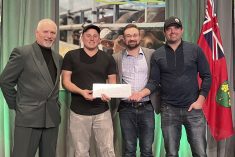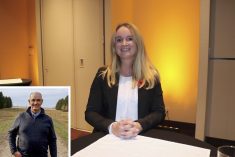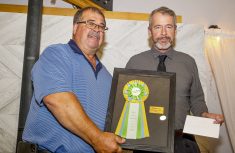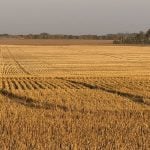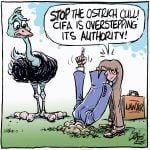Cattlemen’s Young Leaders

Mackenzie Argent is an advocate of all things agriculture. Raised on her family-owned and operated cow-calf and backgrounding operation just west of Cremona, Alta., Argent has a deep-rooted passion for the beef cattle industry. She earned her diploma in ag management, with a major in market- ing and communications, from Olds College, where she was also co-valedictorian of her class. Argent holds an off-farm career with Elanco Canada as the monogastric account representative for Western Canada. In her spare time, she works with her horses, hikes and spends time with her friends and family. Her mentor is Nicole Zeni, senior manager of strategic supply for McDonald’s Restaurants of Canada. Zeni has been a key contributor to major McDonald’s initiatives such as coffee, all day breakfast and beef sustainability, and has been recognized with the prestigious President’s Award.

Raised on a sixth-generation farm in Rosthern, Sask., Matt Hildebrandt and his wife run an operation with over 250 head of cattle that help grow cash/ cover crops and nurture the land. Hildebrandt, who holds a commerce degree from the University of Saskatchewan, manages his farm as a business, monitoring return-on-investment, depreciation and cash flow. He believes managing human resources and relationships with the community are crucial. To that end, he coaches minor hockey and volunteers with the Rosthern Ag Society. Hildebrandt wants the farm to nurture life, produce nutrient-dense food and connect people to the ecosystem, with the goal of the farm and the planet lasting at least another six generations. Hildebrandt’s mentor is Steve Kenyon, who runs a custom grazing business, teaches sustainable grazing management and is a regular columnist with Canadian Cattlemen.
Congratulations to Ed and Charlotte Bothner of Kyle, Sask., who have received the Saskatchewan Stock Growers’ Association Environmental Stewardship Award. In the ’90s, the Bothners decided to turn their operation into a full-time ranch, and have seeded much of the cropland to grass, cross-fenced to facilitate grazing and installed a first-class watering system. Ed Bothner created a five-field rest-rotation system and restored two dams, which allowed him to defer grazing on river banks until the fall. The Bothners also have a conservation agreement with the SSGA under SARPAL, which helps protect many bird species on the ranch, ranging from golden eagles to Sprague’s pipit. Bothner has also placed a conservation easement on a half-section of native grassland, and has looked into purchasing Crown land that is in high demand for annual cropping, with the intention of putting conservation easements on that land as well.
Read Also
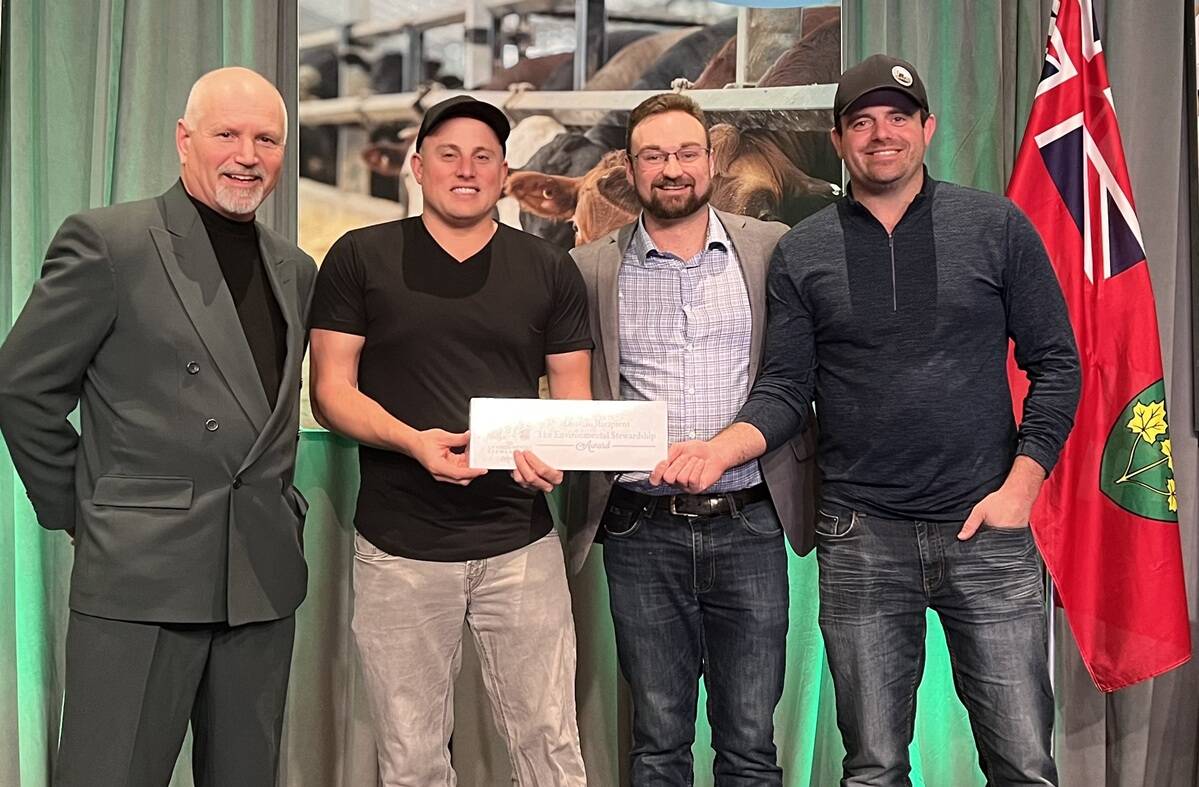
Scholarship winners, board elections and more beef industry news
Scholarship winners, board elections, Canadian Cattle Young Leader bios, and provincial Environmental Stewardship Award winners
Congratulations as well to Brian Maloney, Lise Villeneuve and their daughter Kim Maloney of Brylee Farm for winning Quebec’s Environmental Stewardship Award. Brylee Farm is a fifth-generation farm that focuses on grass-fed beef and lamb, custom grazing and direct marketing. The family subscribes to the holistic management approach, with all three having taken holistic management courses. On the environmental stewardship front, all waterways have been fenced, the land hasn’t been tilled for over 20 years, pastures are permanent and any collected sheep manure is composted. Brylee Farm uses mob grazing and bale grazing, aiming for a 192-day grazing season. They use a grazing board to record paddock yield, grass growth, grazing season length, precipitation and any impact on soil week-to-week. Rotating animals through paddocks allows them to spread manure and improve their land. Brylee Farm is Quebec’s first nomination to the national TESA program.

A hearty congratulations to Ontario beef farmer Stan Eby, who has been selected as one of five inductees into the Canadian Agricultural Hall of Fame. As president of the Ontario Cattlemen’s Association in 2000, he guided the Ontario beef industry through the Walkerton water crisis. Eby spent countless hours in meetings and conducting interviews defending the beef industry’s environmental record. When BSE hit in May 2003, he was vice-president of the Canadian Cattlemen’s Association (CCA), and would take the helm the next year from Neil Jahnke as president. He worked with CCA board members and staff to stabilize and reposition a reeling industry. Eby’s leadership style has been described as quiet, calm and steadfast by Rob Lipsett, current president of the Beef Farmers of Ontario. Earlier this year, the Kincardine, Ont. farmer was inducted into the Ontario Hall of Fame.
Congratulations as well to the other inductees, including Johanne Ross (Agriculture in the Classroom Canada executive director), Dr. Phil Williams (cereal chemist), Gordon Bacon (leader in the pulse sector) and Dr. Don Buckingham (“father of agricultural law in Canada”).
Earlier this summer Dr. Mary Jane Ireland was appointed Canadian delegate to the World Organisation for Animal Health (OIE), as well as Canada’s chief veterinary officer. Ireland graduated from the Ontario Veterinary College at the University of Guelph. She began in mixed animal practice before spending several years at Health Canada’s Veterinary Drugs directorate. In 2020, she became the executive director of the CFIA’s Animal Health directorate. Ire-and takes over from Dr. Jaspinder Komal, who has held the role for four years and will continue as vice-president of the CFIA’s science branch.
Ontario’s Livestock Research and Innovation Corporation (LRIC) recently elected Brian Miller, who represents the poultry sector, as chair of the organization. Don Gordon, representing the Dairy Farmers of Ontario, is the new vice-chair. Also new to the board are RJ Taylor (Ontario Aquaculture Association) and Tara Terpstra (Ontario pork producer). The LRIC helps the Beef Farmers of Ontario set research priorities, with input from BCRC and is involved in research across livestock sectors.

Our condolences to the family of Herman Schwenk, who died earlier this year. Schwenk was a retired farmer, cattle producer, and feedlot operator, which he ran with his family near Coronation, Alta. Schwenk may have been best known for his “Prairie View” column that ran for 18 years in several small-town weeklies, including the East Central Alberta (Coronation) Review and the Oyen Echo. He was also involved with several boards, committees and task forces, ranging from rural electrification to the Alberta Cattle Commission. However, he was always a “hands-on” farmer, running a swather and combine well into his 80s. His sons, Peter and Philip (with help from Stephen), have continued as farmers and cattle producer. His wife of 62 years, Marcella, survives him, along with their seven children and 14 grandchildren.





